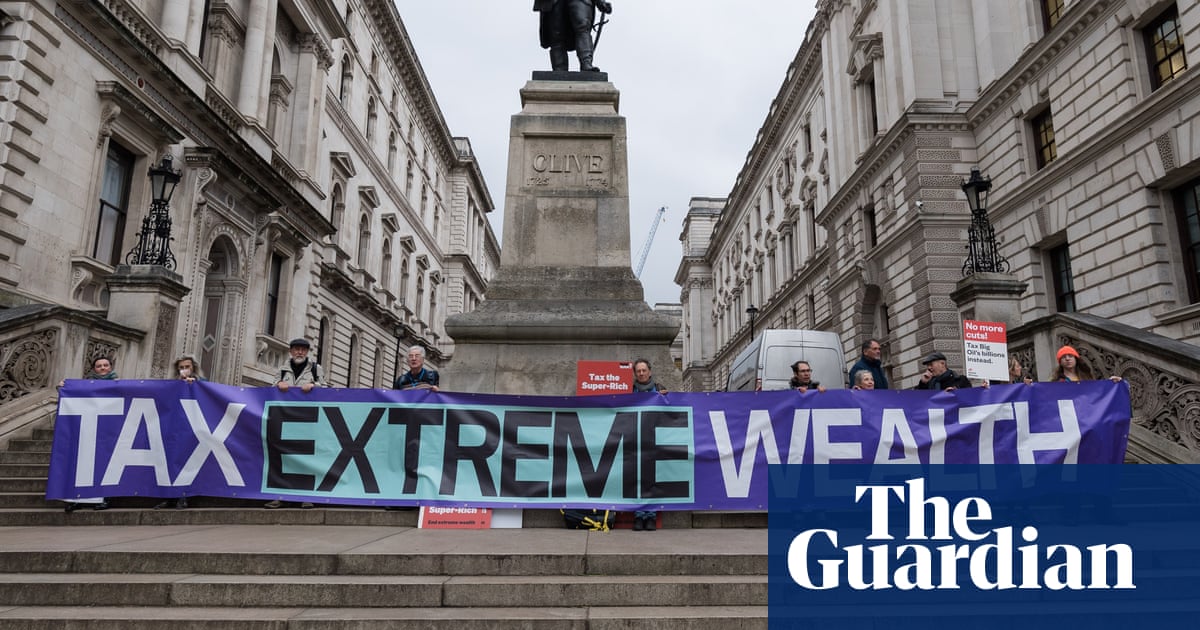You are right that wealth needs to be taxed more fairly (Editorial, 23 May), but the proposed solution from Tax Justice UK that you promote is too simplistic. Taxing assets above £10m sounds a nice way to restrict the pain to a very small number of people, hence its 78% support among the public. But the experience of other countries is that a wealth tax on the super-rich simply doesn’t work (the IFS has manyexcellent articleson the subject).
Wealth does need to be taxed more fairly, andequalising capital gains tax with income taxwould be a good start – easy to administer and yielding significant revenues. Making council tax fairer would result in a massive redistribution of wealth. And middle-income earners – the biggest segment of taxpayers – will need to pay higher taxes.
Only the first of these is politically straightforward – the other two would need a much greater consensus around solidarity and fair contribution than exists in Britain today, and politicians need to start laying the groundwork for that now if the tax system is to be made fairer.Duncan CraigLondon
It is inarguable that Britain’s economy has, as you say, become “a machine for the upward redistribution of wealth” – a dynamic surely fuelling the fear-driven rightward drift of our politics. Yet contemporary surface trends alone cannot explain this volcano of discontent. A surprising amount of inequality remains rooted deep in mercenary medieval violence, bequeathing us a land ownership pattern that never seems to change.
So, of course, as long as our public realm is threadbare, target the newly income-wealthy, but do not forget to tax the hoarders of these unearned historical assets (eg through land value tax). And never permit the affluent and privileged to criticise our struggling public services while arguing for tax cuts for their ilk.Dr Brendan HillEdinburgh
What is the purpose of a majority of British people being in favour of a wealth tax when too many non-productive UK billionaires dictate and control our trickle-up economy to their advantage? Is it ignorance, fear and cowardice that diverts the minds of too many parliamentary leaders and economists away from fairness and decency?
Tax Justice UK is correct. A relatively modest wealth tax would enable practical moves towards equality, not least for students and staff in further and higher education. The government needs to give moral leadership, and here are policies for meaningful ways forward.Barry JonesEmeritus professor, Brunel University of London
Your editorial ignores three factors: wealth is reinvested (alienate it and there is less to sustain our economy); inheritance and wealth taxes amount to double taxation (they are major disincentives to the wealth creation on which high-spending economies depend); in terms of the first tranche of taxation, that on income and in terms of “who pays the bills”, thetop 1% pay 30% of income tax, the top 10%, 60% and the top 50%, 90%.
Better public services depend on the encouragement of wealth creation, not its disincentivisation.David BiesterfieldEglingham, Northumberland
The reason we have so many billionaires (and such an egregiously skewed distribution of wealth) is simply that our political parties depend on, and are beholden to, their billionaire funders.Jon MarksTring, Hertfordshire
Have an opinion on anything you’ve read in the Guardian today? Pleaseemailus your letter and it will be considered for publication in ourletterssection.
